Landscapes in the Fall
Part of our series featuring elements of landscape photography.
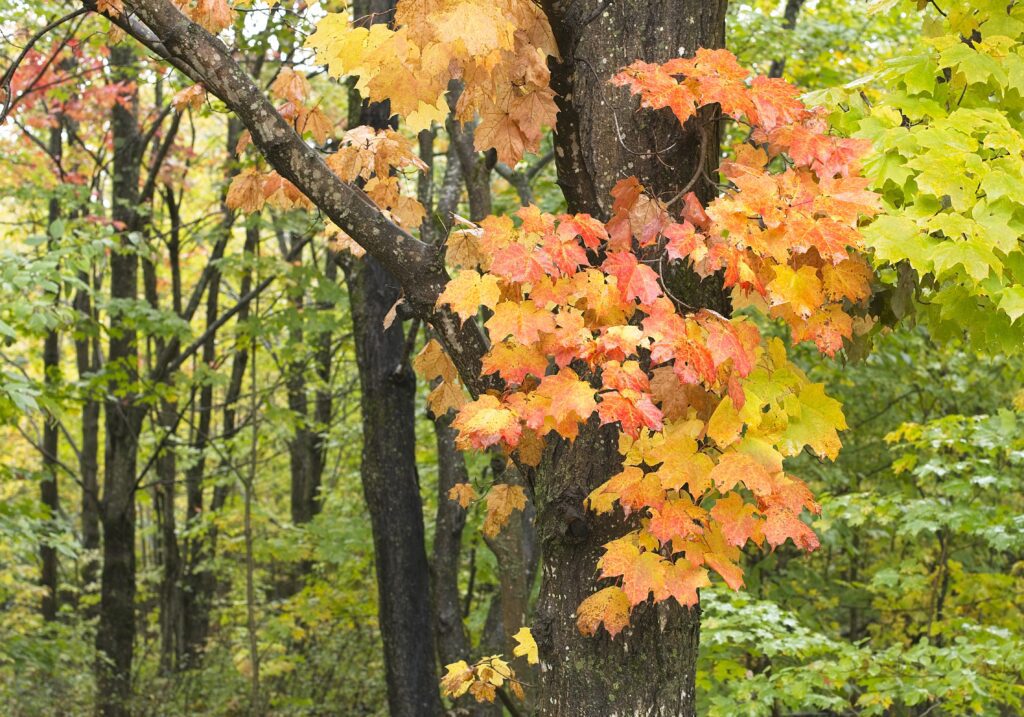
Fall is a wonderful time of year! For an outdoor enthusiast, cold nights and cool daytime temperatures provide a perfect environment for exploring. Trees and ground cover begin to turn color before going dormant for the winter months. Fall foliage adds another dimension to landscape photography.
The cover and the next few images were taken in New England and Eastern Canada. In this region a variety of maple trees are prominent. In the fall, Black Maples turn yellow. Red Maples turn scarlet. Sugar Maples turn orange or red.
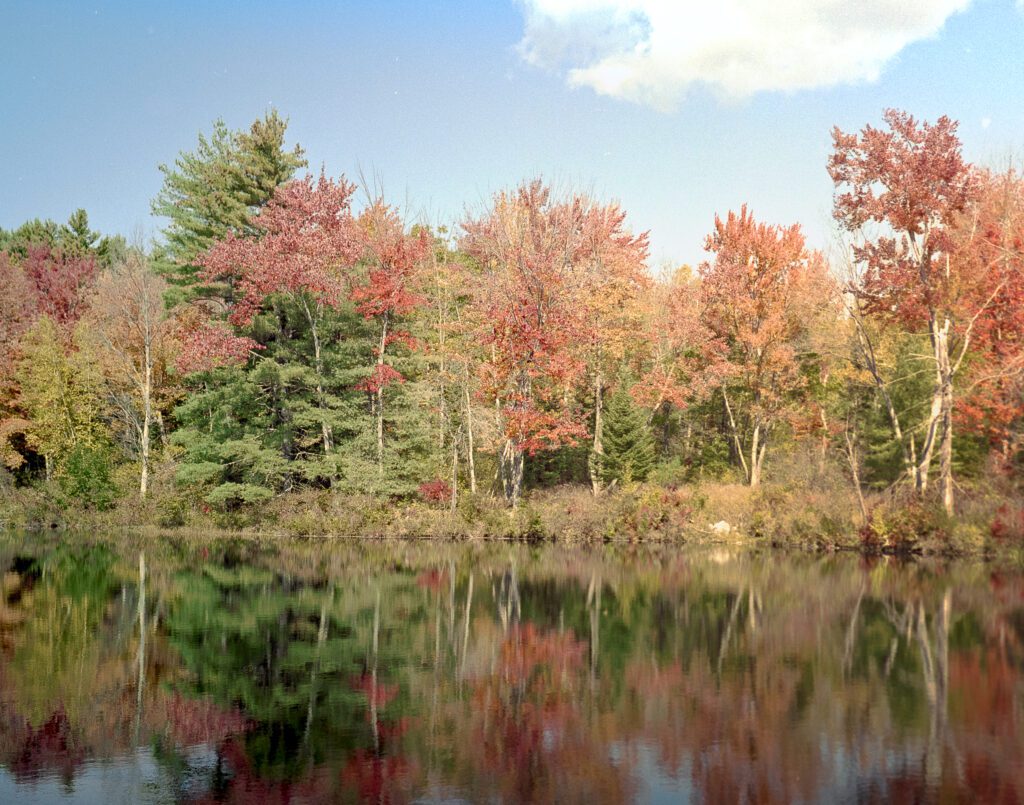
New England Glory
The Art and Science of Fall Colors
Viewing and capturing fall colors is both an art and science. Every season is unique. Each tree species acts differently in a fall cycle. The reasons for these differences are primarily environmental. The biggest factor is the shortened daylight hours as winter approaches. Tree leaves slow down the production of chlorophyl that makes leaves green and provides essential nourishment. When the chlorophyll flow slows down or stops, remaining chemical in the leaf provides the visible color change. Other weather factors such as cold nights can play a role in the fall foliage timing. The amount of moisture during the year can also affect the color. Forecasting the timing and patterns of fall foliage is a guess!
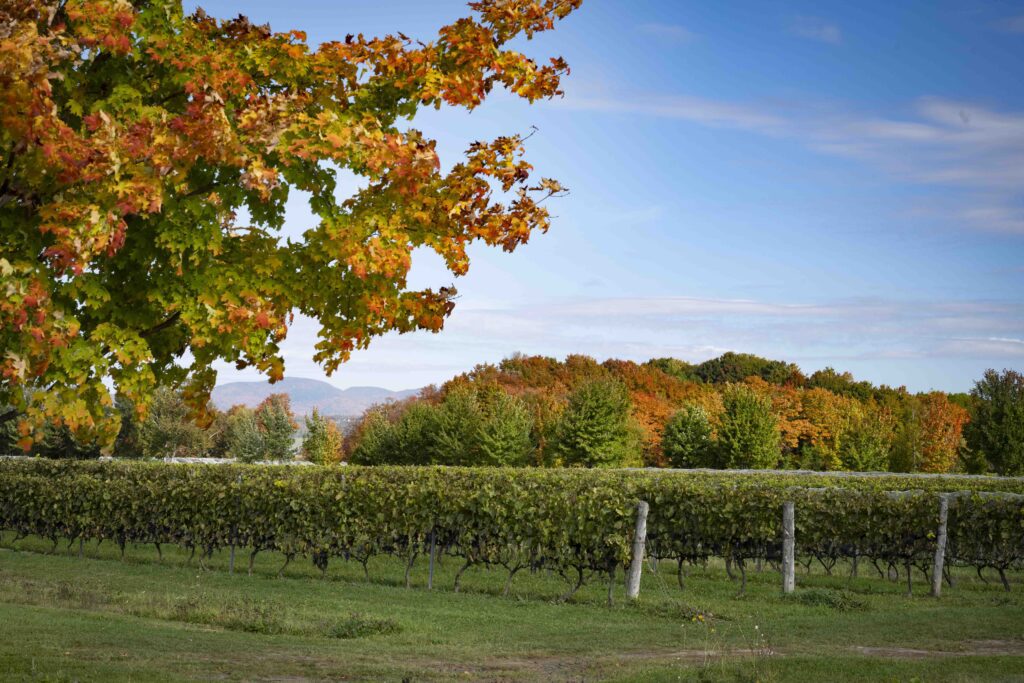
Wine Vineyard on the Isle of Orleans, Quebec
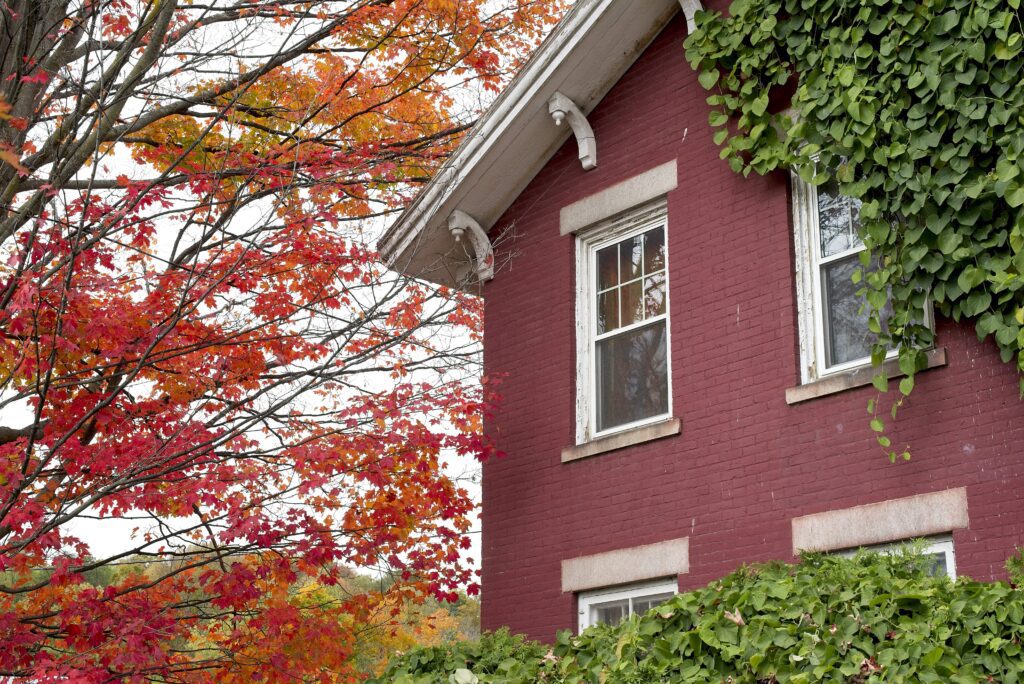
Red Maple Tree in Central Vermont
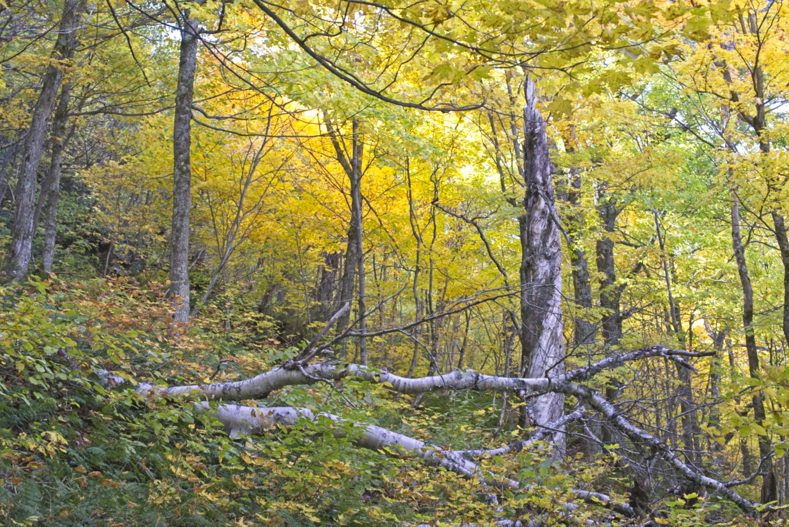
Vermont Countryside in Fall
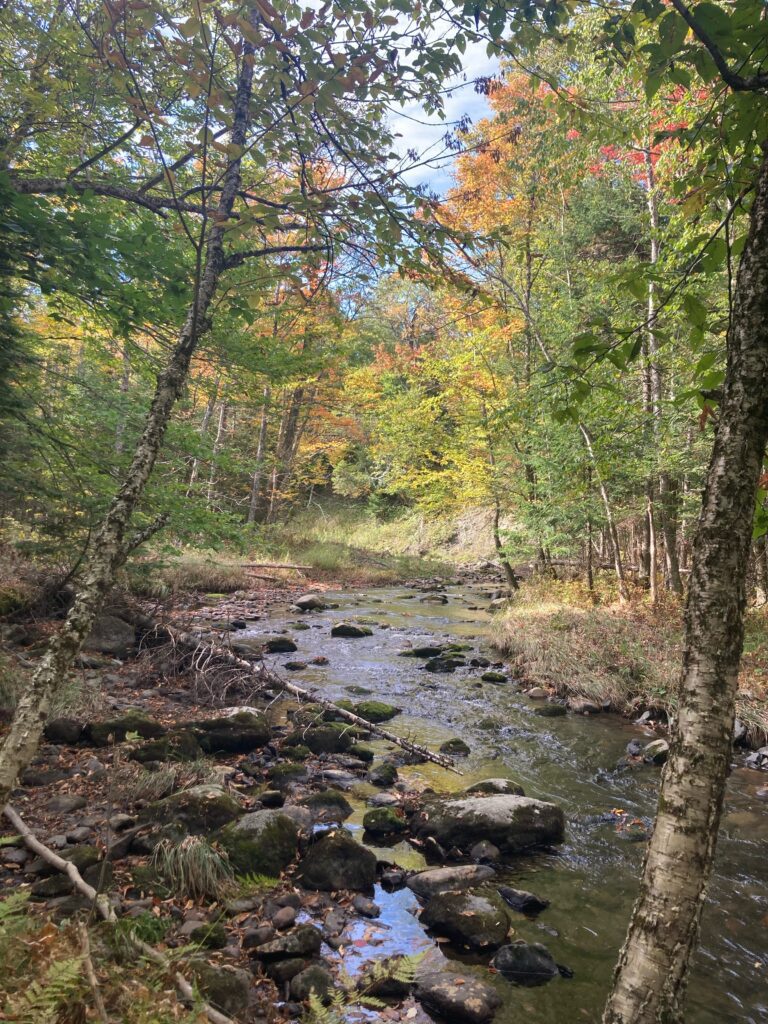
Creekside in Quebec
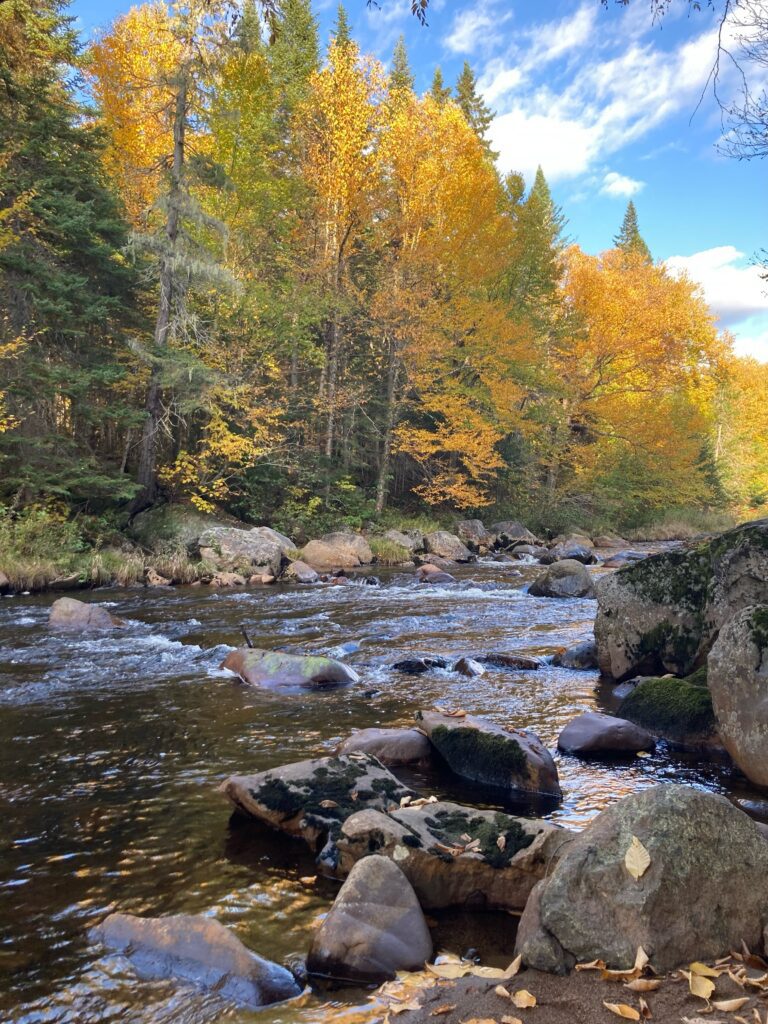
A Vibrant Yellow Backdrop in Quebec
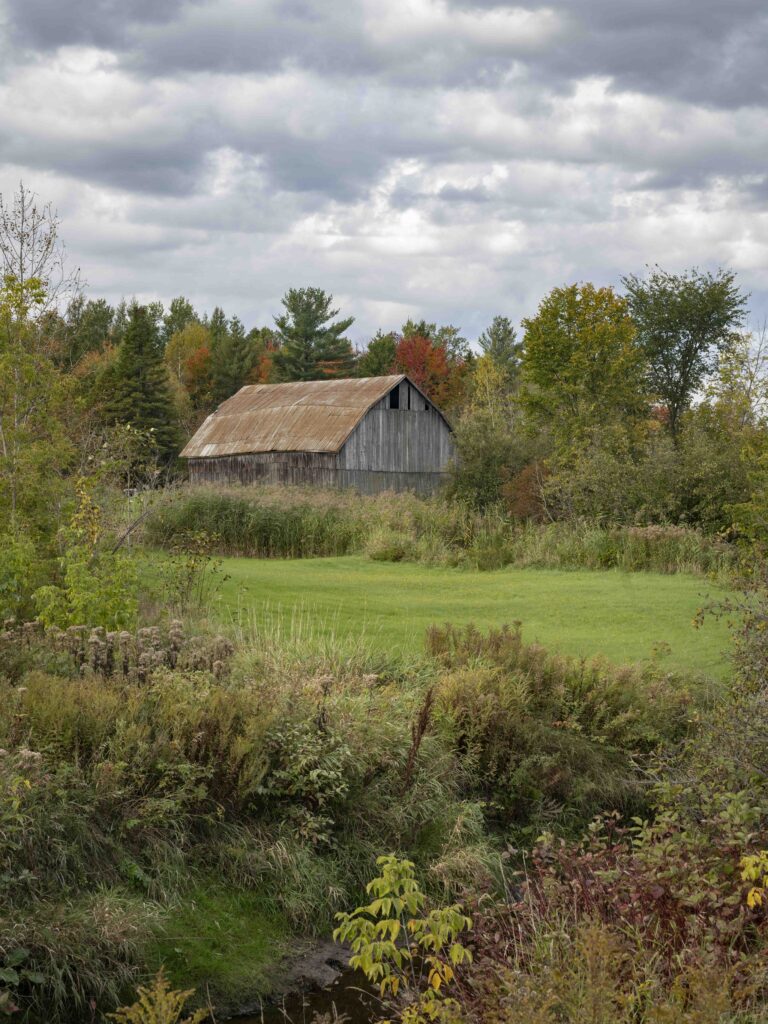
Early Fall Foliage Near Montreal
The next few images were taken in Colorado and Wyoming. Both demonstrate the color pallet of smaller bushes and ground cover.

Pond at Roaring Judy Hatchery, Colorado
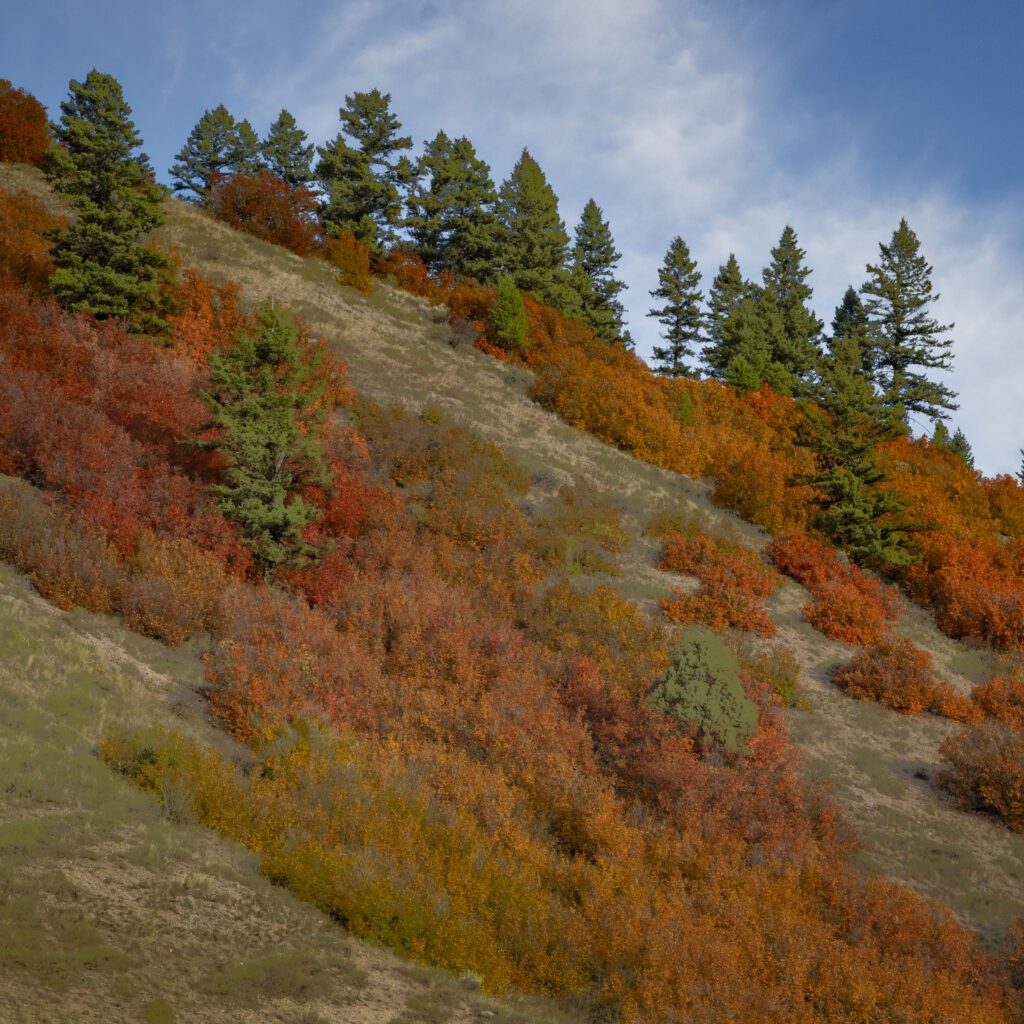
Wyoming Fall Landscape
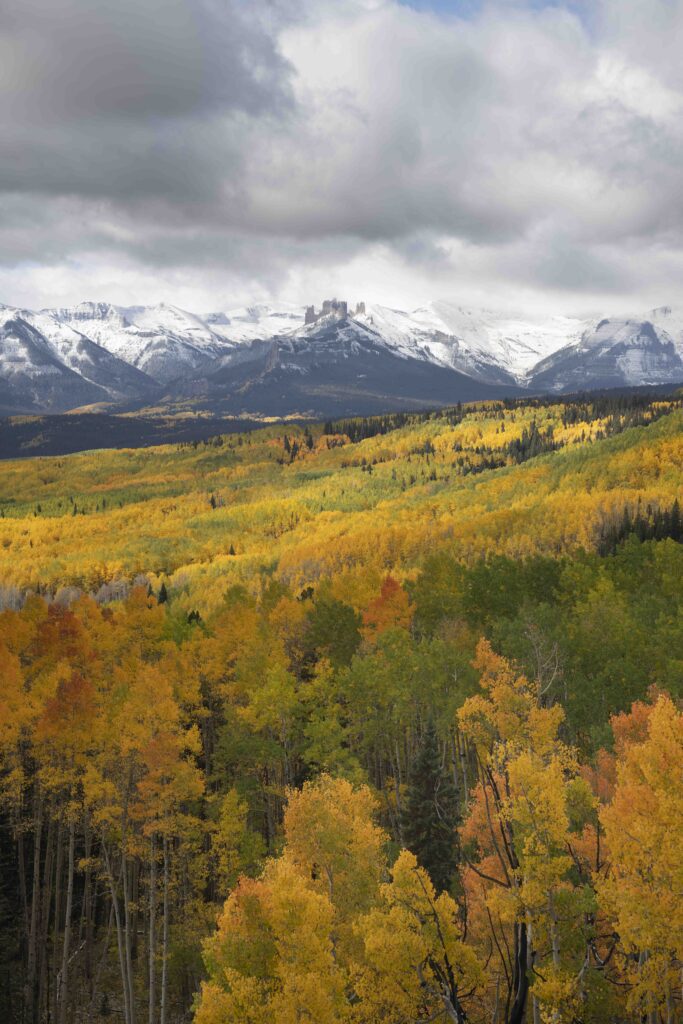
Ohio Pass in Gunnison County Colorado
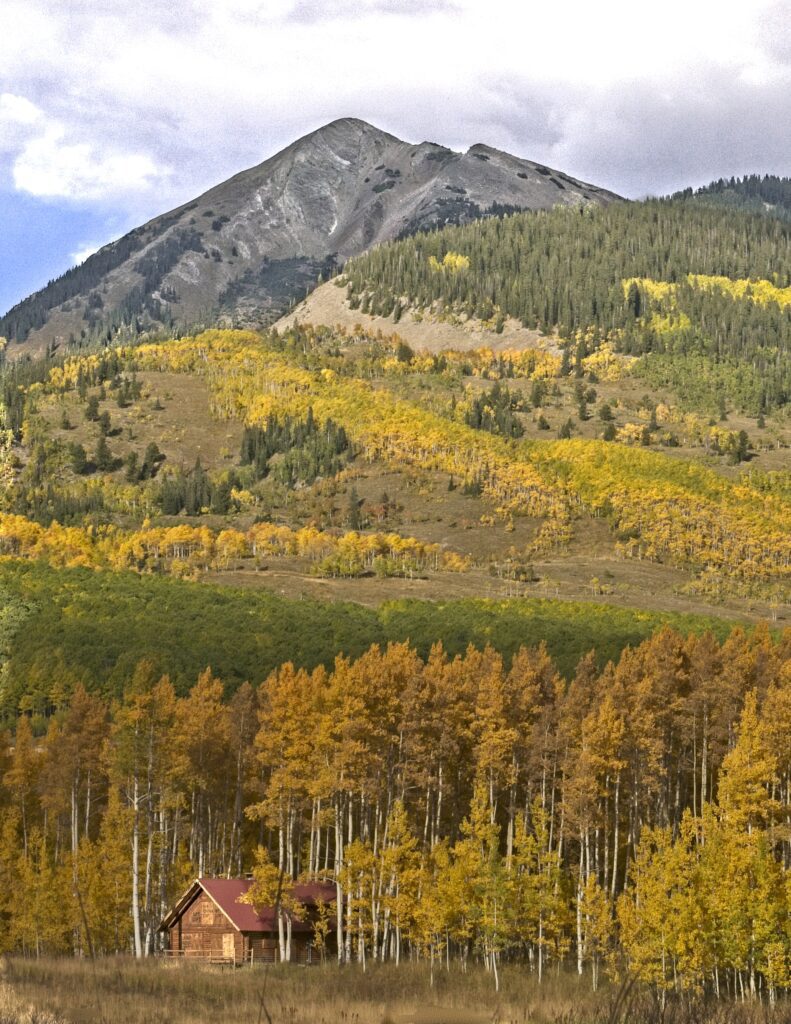
Gothic Colorado Along the East River
The Central Rocky Mountains have abundant Aspen trees. Unlike most trees, Aspens may share a common root system in an entire forest. The color can change from lime green, yellow, orange and sometimes red before they finally fall from the trees. Forests in the Colorado region of the Rockies are populated by Aspens and Conifers. The most common Conifers are Spruce, Fir and Pine. These varieties have a leaf structure that resembles needles that are much more freeze tolerant with no need to shed.
In the image below, the emerging vibrant colors pair well with the green Conifers making an interesting visual combination.
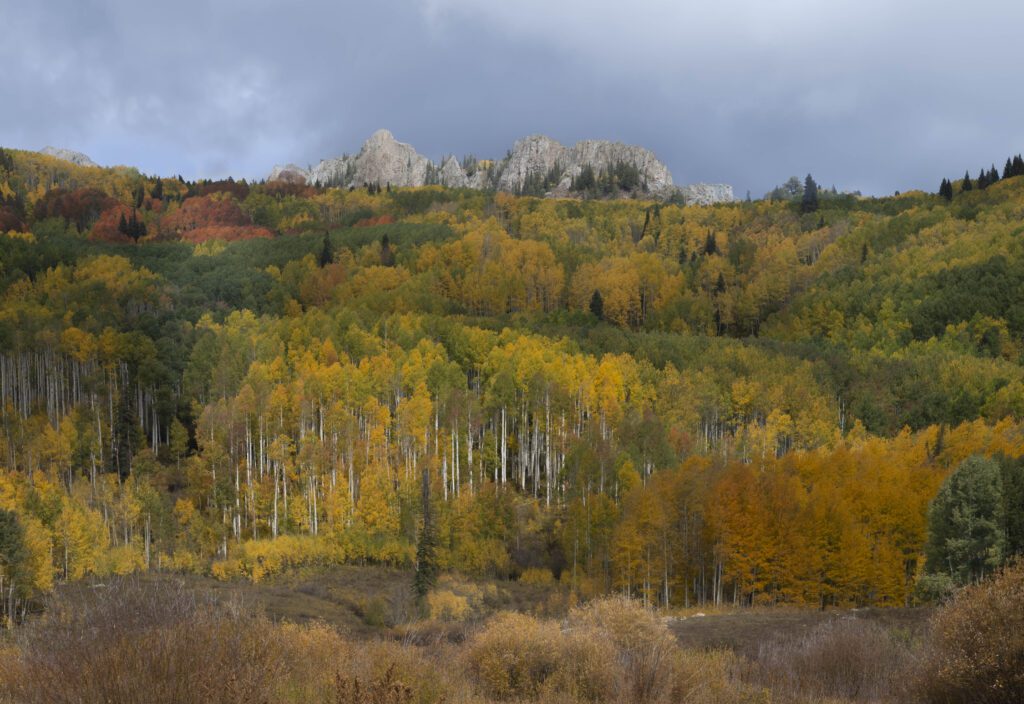
Horse Ranch Park in Colorado
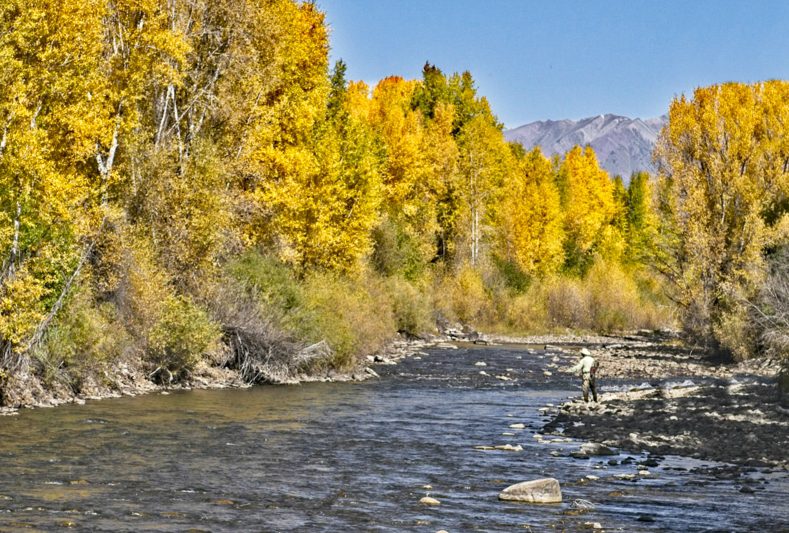
Fly Fisherman On the East River Near Almont, Colorado
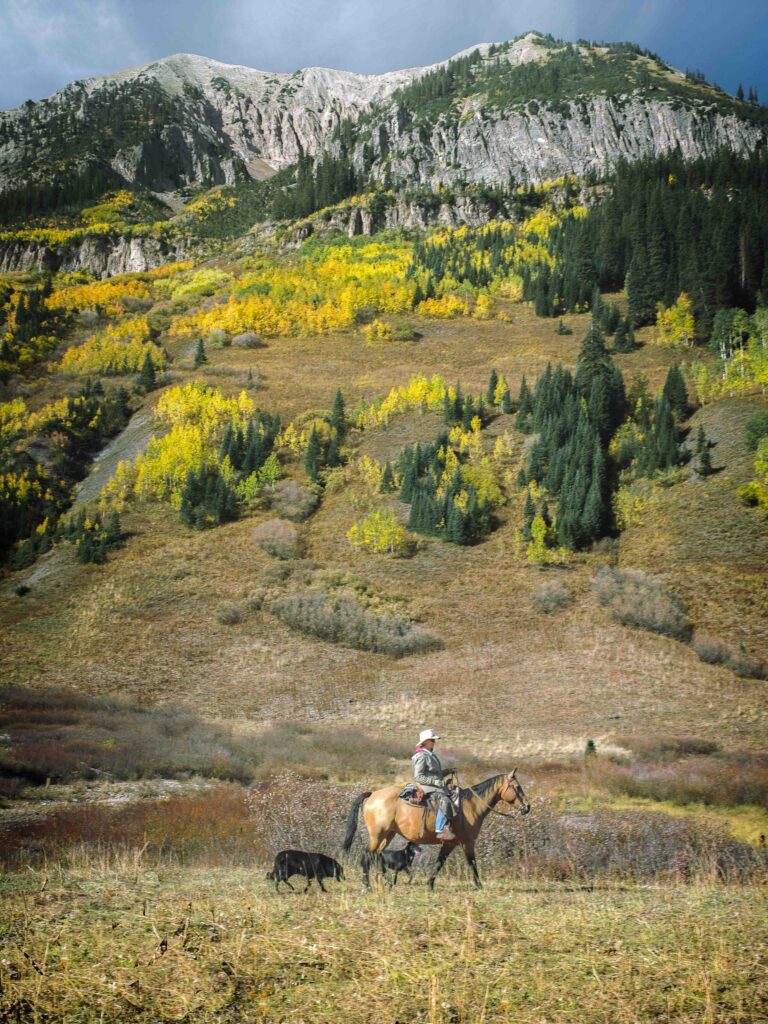
A Cowgirl in Gothic Colorado with her horse and dogs begin the late fall task of rounding up cattle before winter.
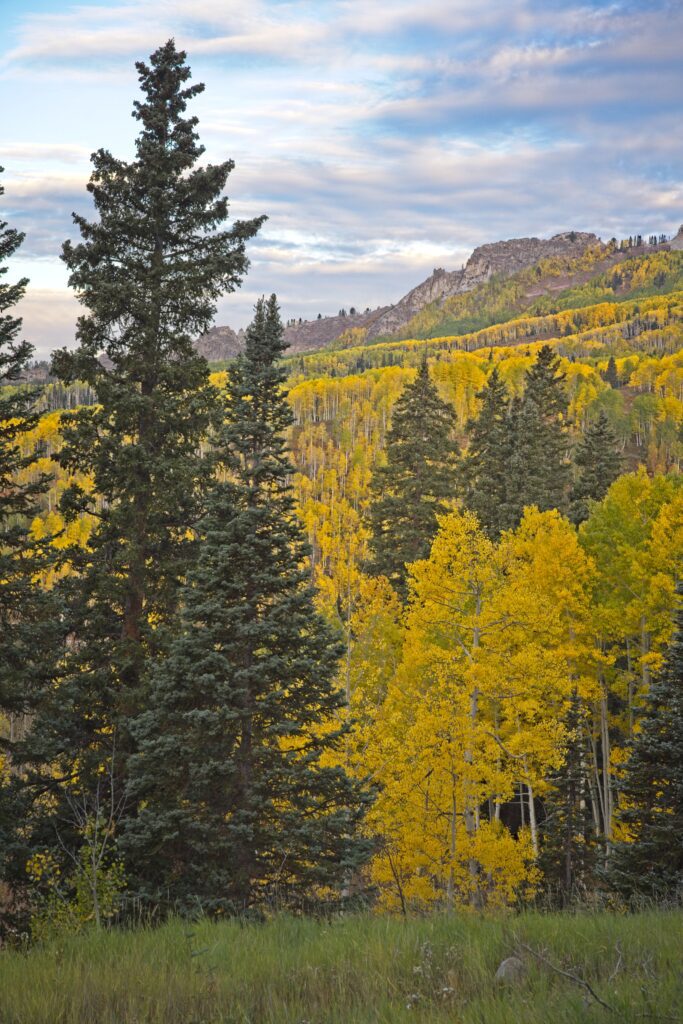
A View of the Ragged Mountain Range, Colorado
One of my favorite locations for fall is the forest shown above. This is an area of the Gunnison National Forest near Kebler Pass. The yellow Aspen and green spruce trees provide a pleasing visual contrast.
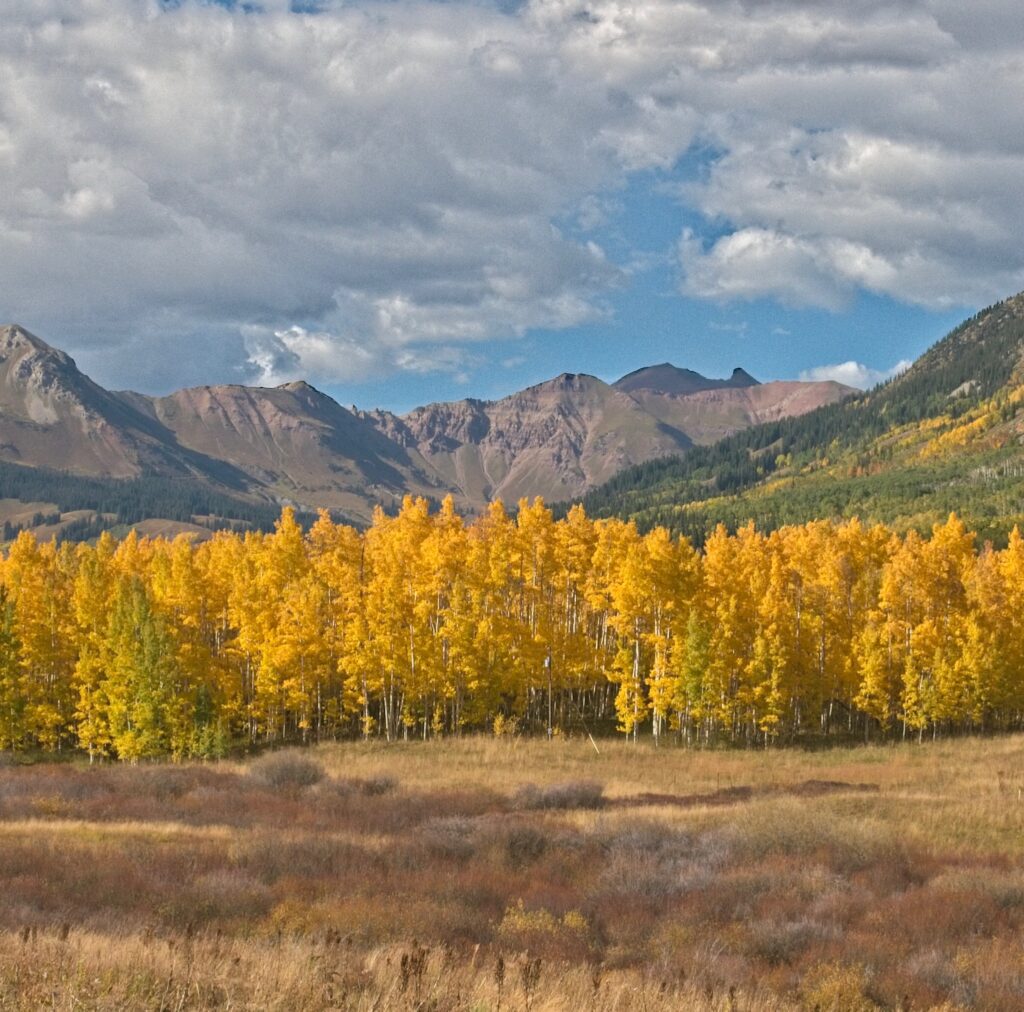
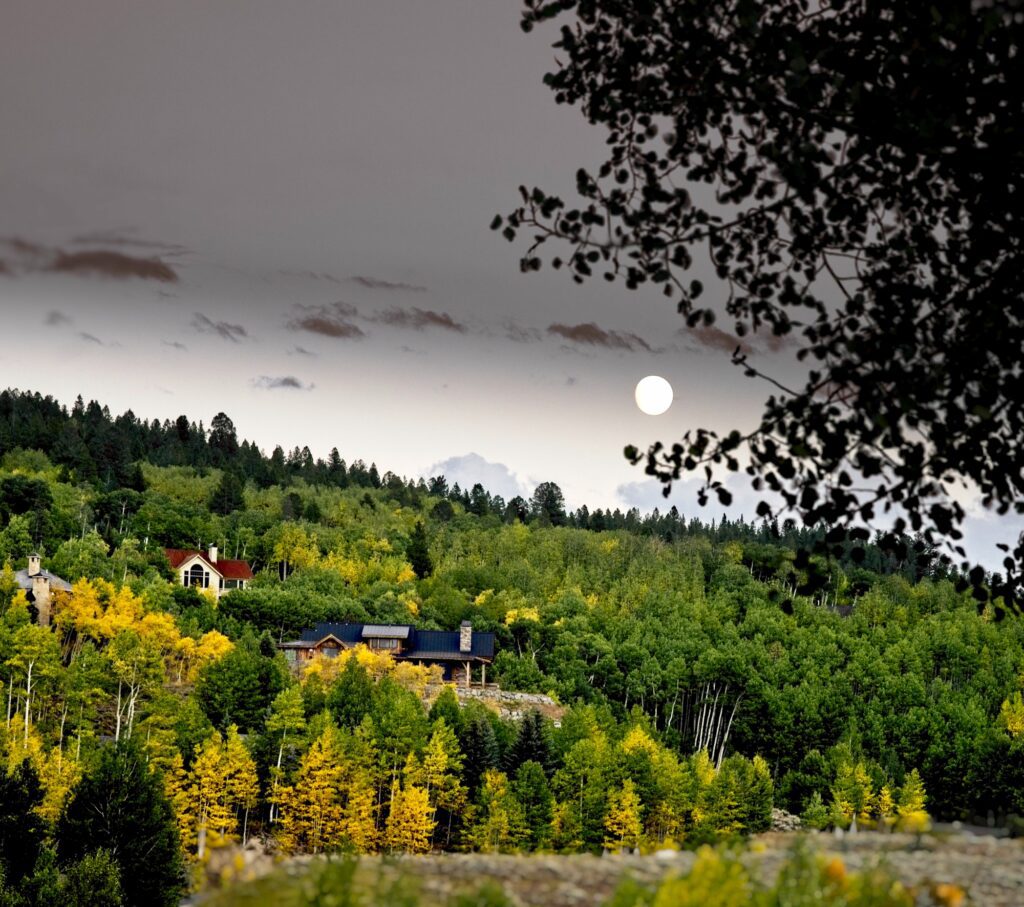
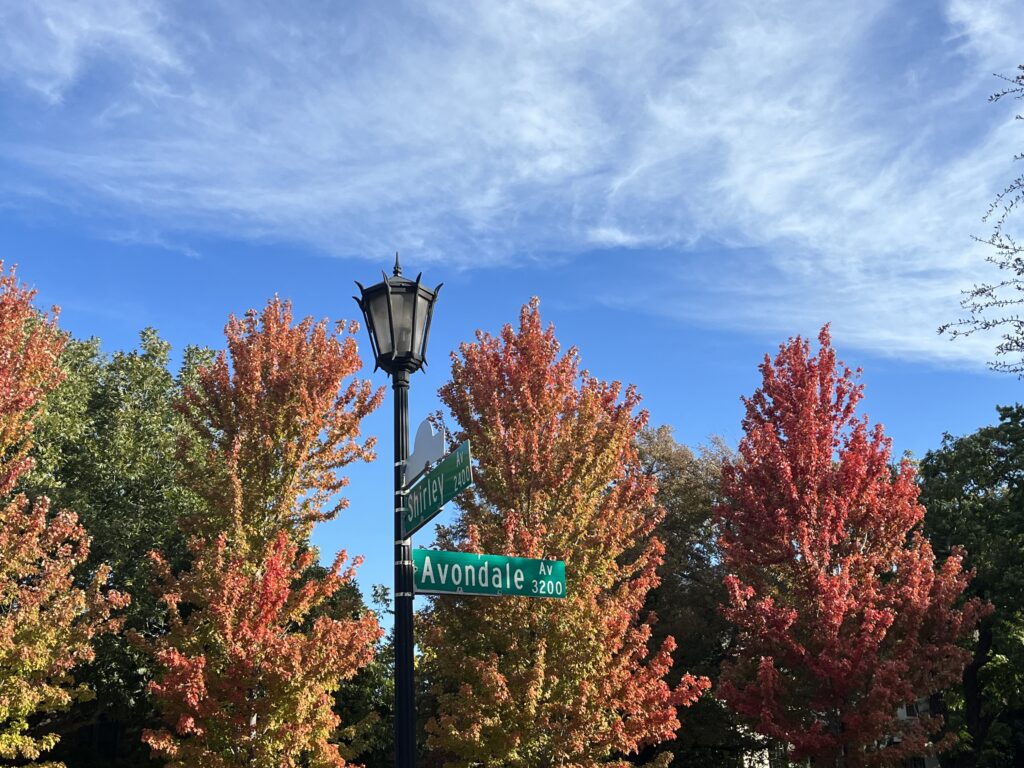
Fortunately fall can be enjoyed in all kinds of places. In Fort Worth, Texas our neighbors colorful Silver Maples bring an emotional lift.
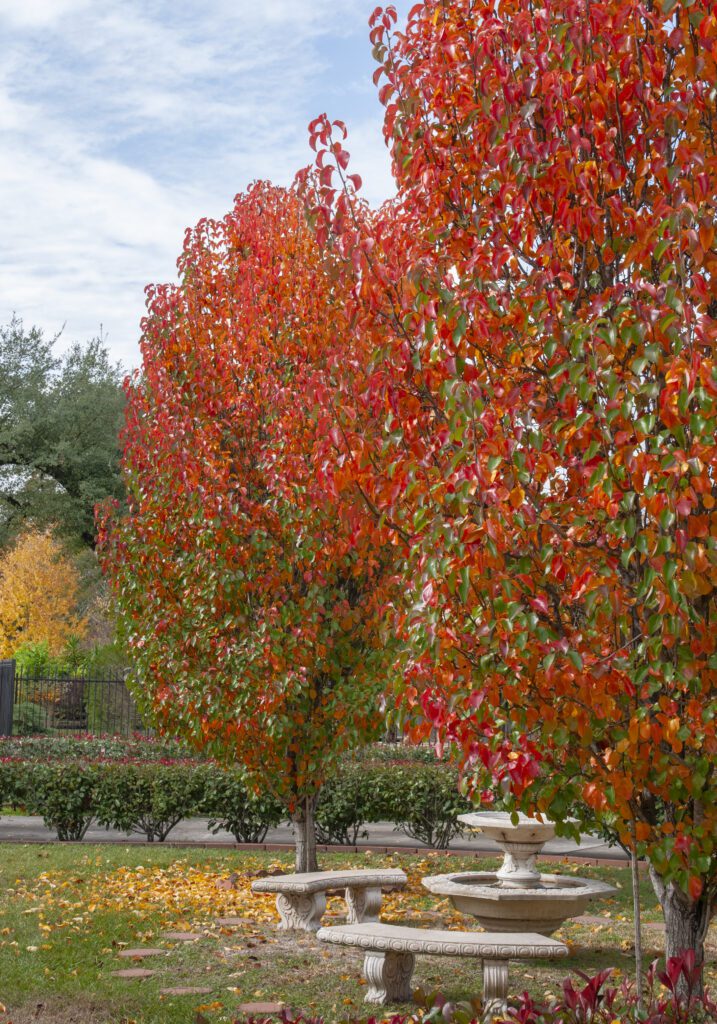
Parks Along Buffalo Bayou in Houston, Texas
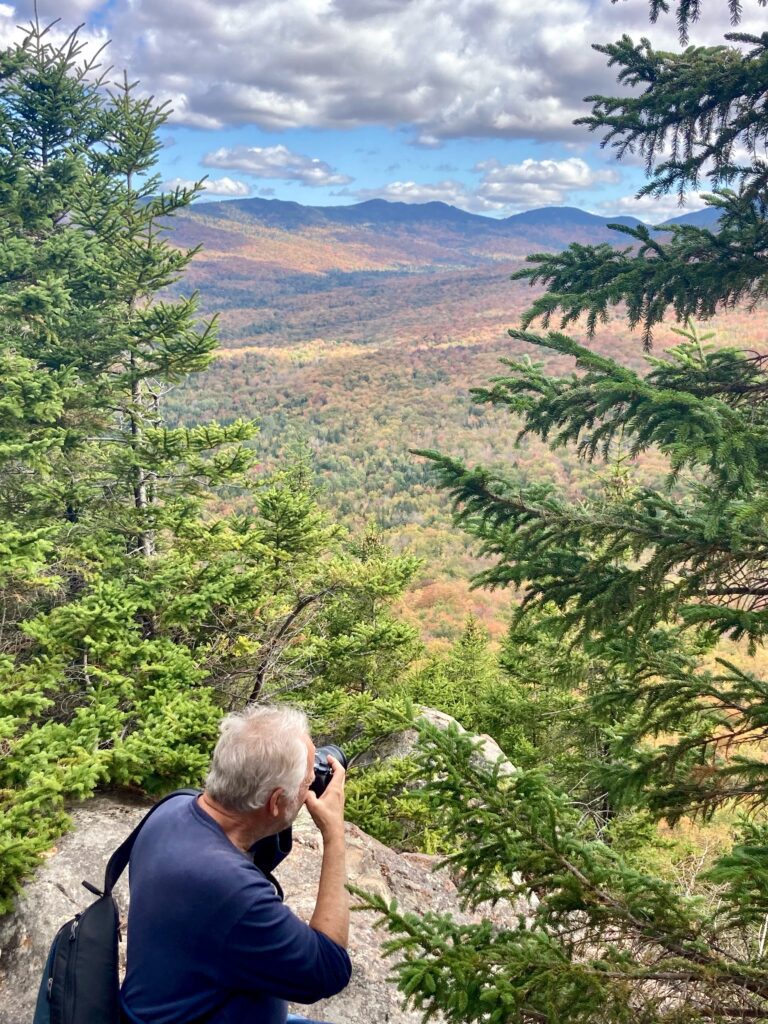
Mont Megantic Quebec, Canada
Finding the most colorful fall foliage can be challenging. This season we ere early. The Color had just begun to change near Mont Megantic, Quebec. At the same time, areas of New York and New Hampshire 250 miles South, which usually change later, were experiencing near peak colors. We will continue the hunt next fall!
Visit us for our current exhibits a Tributary Coffee, Gunnison, Colorado.Subscribe to the blog please complete the contact form.

